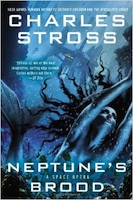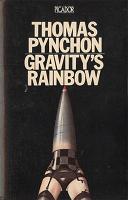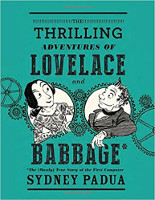 Charles Stross is a writer of Near-Future SF, Space Opera, and Geeky Horror stories living in Scotland. I’m not going to count his published output - firstly it is substantial, secondly it’s riddled with re-issues, Omnibus editions, and Novellas, making it hard to count; and thirdly if you have not come across any of it yet - which rock did crawl under from? He’s won Hugo and Locus Awards for his work, and has been nominated and shortlisted for about every other award going, too. This year (being 2014, should you read this in the future) he is nominated for a Hugo Award in two categories - in the Best Novella category with his wonderful story Equoid; and in the Best Novel category with this book, Neptune’s Brood.
Charles Stross is a writer of Near-Future SF, Space Opera, and Geeky Horror stories living in Scotland. I’m not going to count his published output - firstly it is substantial, secondly it’s riddled with re-issues, Omnibus editions, and Novellas, making it hard to count; and thirdly if you have not come across any of it yet - which rock did crawl under from? He’s won Hugo and Locus Awards for his work, and has been nominated and shortlisted for about every other award going, too. This year (being 2014, should you read this in the future) he is nominated for a Hugo Award in two categories - in the Best Novella category with his wonderful story Equoid; and in the Best Novel category with this book, Neptune’s Brood.
Neptune’s Brood is the 2nd book in the Freyaverse series/universe. It is set far into the future from the first book, and story wise not really linked, so can perfectly well be read on its own, all you will miss is some history (and not even of the characters themselves). We also don’t get Sex Robots, or Robot Sex, for that matter - sorry if that was one of the things you liked in Saturn’s Children, the earlier book in the series. (IMHO the Sex Robots were fun, but the Robot Sex got a bit much. But that’s just me).
We join Krina Alisond who has recently beamed into Taj Beacon as a data stream, was downloaded onto soul chips, and installed into a newly built body. This is the the default way to travel interstellar distances (at light speed, nevertheless), unless you want to spend centuries in hibernation, which is really only done for colonisation ships (you need a receiver at the far end to be sent across and re-assembled!). And, as a side comment, this is not the first time we've seen that mode of travel in a Stross story before, either – Scratch Monkey used the same provisions, with some different provisions on the side.
“Beacon Stations are the choke points of interstellar trade, positioned to extract value from the slow money of the dissatisfied and the desperate as they pass through the network.”
Krina is on the lookout for a sib (spawned by the same Mater) who has vanished – and she has an idea why (in short – they were up to things their very wealthy and very powerful mother and employer does not exactly approve). And, after being re-assembled in her new body, she hires working passage, in-system, on a flying, space-going Cathedral of the Church of the Fragile. (the Fragile – that's what humans are called by their post-human offspring. Humans have been extinct repeatedly, and only our creatures persist. Including in bringing us back, and trying to spread us to new worlds, which is the work of the Church.
But, as you would expect, not everything and everyone is as/what they seem. Things happen to Krina, and what you think you know (and what she thinks she knows) keeps changing. The number and frequency of these reversals and sudden shifts in the direction of the story is rather reminiscent of Rapture of the Nerds, which Stross co-wrote with Cory Doctorow, and which also (especially in the first half) lurches from one paradigm to the next all too frequently.
Sometimes this is amusing, but in summary I found it rather unnecessary and distracting – the impression given is that there is not really a story arc, but just one damn thing after another.
“[...] codices: stacks of flexible thin sheets, covered in static impressions of writing - an archaic data storage technology, heavy and unchanging - physically linked at one edge to provide sequential block-level access.”
The other things about the book is that it can feel like a collection of information dumps, interspersed with some explanatory/demonstrative action or at least activity and exchanges. To some degree this is ??? by the basic premise of the story being told. I mean, what kind of mind comes up with a multi-tierd galactic financial system of crypto-currencies, their banking arrangements, and the ways to defraud it? With the on-going colonisation of solar systems arranged as a giant Ponzi scheme? And then tells this as a story? Yes, you and me do need rather a lot of background information to make sense of what is going on...
“The difference between merchant banking and barefaced piracy is slimmer than most people imagine.”
Now, don't let me sound too negative here – this is an entertaining, if not always compulsive read, on a very very clever premise. And whilst this makes it overly dependent on the financial implications and causalities of expansion, colony ships, and the kind of fraud you can commit across interstellar distances (with all the associated data dumps to allow the reader to follow the story) it also makes for an unusual, rather interesting, and thus definitely recommended read. Oh, and of course we get Stross-isms, including this howler: “...the smell of sessile hermaphrodite genitalia...” (ok, ok, I help. Flowers).
The book is, as I have indicated further up, shortlisted for the 2014 Hugo Award. I have not read all the competitors, so cannot fully judge the field, and Charlie's chances (I would suspect that his Novella Equoid, which is also nominated, stands a better chance, though).
More Charles Stross
Title: Neptune’s Brood
Series: Freyaverse
Series Number: 2
Author: Charles Stross
Reviewer: Markus
Reviewer URL: http://thierstein.net
Publisher: Ace/Penguin
Publisher URL: http://www.penguin.com
Publication Date: July 2014 (PB)
Review Date: 140810
ISBN:9780425256305
Price: USD 7.99
Pages: 338
Format: Paperback
Topic: Space Opera
Topic: Galactic Finance













